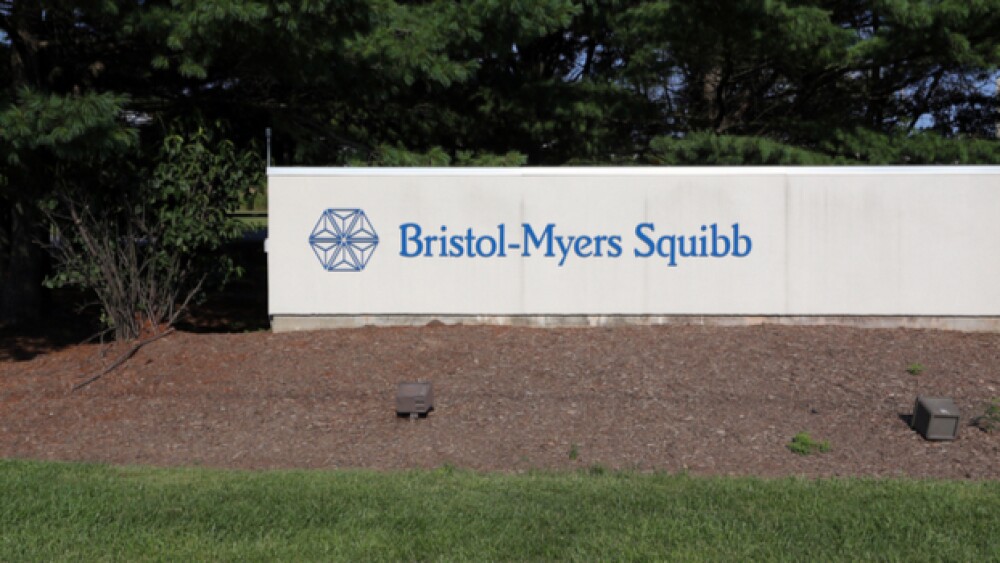The company announced today that the drug failed to meet its primary endpoint in patients with newly diagnosed O6-methylguanine-DNA methyltransferase (MGMT)-unmethylated glioblastoma multiforme (GBM), a type of brain cancer.
Katherine Welles / Shutterstock.com
It feels sometimes as if Bristol-Myers Squibb’s checkpoint inhibitor Opdivo (nivolumab) is a miraculous cancer drug, given the number of indications it has been approved for. And in many ways it is. However, it apparently can’t do everything, and the company announced today that the drug failed to meet its primary endpoint in patients with newly diagnosed O6-methylguanine-DNA methyltransferase (MGMT)-unmethylated glioblastoma multiforme (GBM), a type of brain cancer.
The drug was being evaluated in the Phase III CheckMate -498 trial with radiation compared to temozolomide plus radiation in this patient population. Temozolomide is an oral chemotherapy drug. The primary endpoint was overall survival (OS).
After surgery, patients in the Opdivo arm received the drug every two weeks along with radiation followed by Opdivo maintenance doses every four weeks until disease progression or unacceptable toxicity. Secondary endpoints were progression-free survival and OS rate at two years.
GBM is the most aggressive and most common form of primary malignant cancer of the central nervous system. About 300,000 people develop it around the world each year and 241,000 patients die from brain or CNS cancer every year. Standard treatment for patients who have just been diagnosed with GBM includes surgery followed by radiation and chemotherapy. However, there are few other treatment options. The five-year survival rate of patients with GBM is less than 5%.
MGMT methylation status is a biomarker for GBM and is potentially predictive of how patients with the cancer respond to temozolomide and other types of alkylating chemotherapy. Patients with MGMT-unmethylated GBM typically have a worse prognosis than patients with MGMT-methylated GBM.
The company will present more detailed results from the trial at a future medical conference.
“While we are disappointed the CheckMate -498 trial did not meet its primary endpoint, GBM is a notoriously aggressive cancer,” stated Fouad Namouni, head, oncology development for Bristol-Myers Squibb. “We are grateful to all those who participated in this trial and remain committed to researching the potential of immunotherapy to address the important unmet medical need of patients who suffer from this devastating disease.”
The company is also investigating Opdivo in patients with newly diagnosed MGMT-methylated GBM in the Phase III CheckMate -548 trial
The late Sen. John McCain died from GBM. In August 2018, around the time of his death on August 25, 2018, it was reported that 10 companies were working on treatments for the disease and according to the National Institutes of Health (NIH), there were about 274 glioblastoma multiforme trials underway or recruiting across the U.S.
Other companies working on drugs for GBM include Bexion Pharmaceuticals, AiVita Biomedical, China-based CANBridge Life Sciences, Diffusion Pharmaceuticals, Celgene, Inovio and Regeneron and others.
The cancer starts in the brain and affects glial cells, which surround neurons. One reason they are so difficult to treat is they don’t grow in a defined clump with well-defined borders. The tumors have thread-like tendrils that reach into adjoining areas of the brain, which makes it nearly impossible to surgically remove every cancer cell.
In an NPR story about Senator McCain in July 2017, shortly after his diagnosis, Lynne Taylor, co-director of the Alvord Brain Tumor Center at the University of Washington and a fellow of the American Academy of Neurology, said, “Those of us who’ve taken care of glioblastoma patients for a long time are seeing increasingly long-term survivors—you know, people who live a decade. It’s not common. It’s not typical. But it absolutely happens.”





